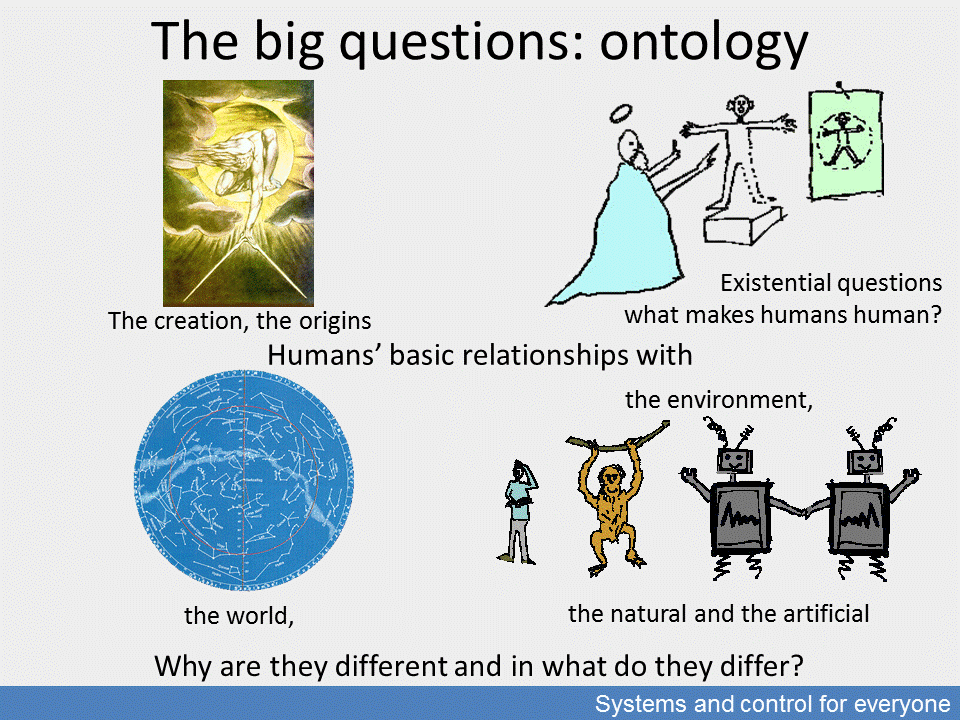

The big questions: ontology
What is man, and what is his role in the world and in his natural and social environment? Modern science and system theory have a lot more to say about this than any other efforts in history directed at observation and perception. It is an incredibly large scope, more than 30 orders of magnitude that we can grasp now with our computer-based devices. In time this means from attoseconds used in laser technology to ten billion years measured by extremely large space telescopes capable of detecting cosmic broadband radio waves. In size this means similar magnitudes: from visible atoms and their detectable particles to the presumed size of the universe.
The complex system of our socio-economic relations is also similar: it comprises the vibrant global relationships of more than 7 billion different individuals with all other individuals, living organisms and the geological and meteorological conditions of the Earth, free from space and time.
More and more people are asking what will happen to humanity if machines will surpass us in every respect. For the time being, we can answer this question on the basis of the ontological essence of man; the belief that evolution has made man a product of interconnected emotions and intelligence which is so complex that it is essentially different from all machine-made representations.